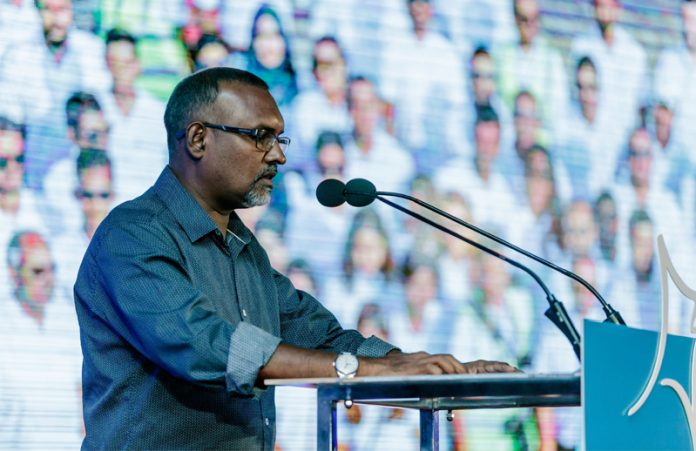MALE (Maldives), Mar 11 : Manta Air CEO Mohammed Khaleel said the diplomatic rift between India and Maldives is persisting due to the actions of certain stupid middle-level politicians and the influence of social media, but exuded confidence that the relations between the countries cannot be broken easily due to years of strong bonds and shared interests.
“Any issue diplomatically and commercially will impact. But the impact was not really that big. Luckily it did not last long. The whole thing is that some stupid politicians, the middle-level politicians and social media, played a very critical role in putting that rift between the two countries, but think it’s dying down and both countries need to work together,” he told UNI in an exclusive interview at Kandima Maldives.
Khaleel also reflected a pragmatic approach to international relations and business partnerships by acknowledging the transient nature of political cycles while emphasizing the enduring importance of economic ties.
“The politicians will come and go, but business will stay forever because we are there basically, we need each other. The politicians every five years or every two years at the top might change, but certain policies do not change and certain policies will get a little bit changed. So things are quite okay,” he said. Khaleel also said the business community and tourism sector continue to thrive due to mutual benefit and consistent policies. “In terms of India, arrivals were not impacted badly. You see, the number of flights has not been reduced. The load factor has not been reduced. But I believe that both countries, the Maldivians believe that they want Indian tourists. The business people like us took a bold step – our airline wanted to go to India and fly there,” he said.
He emphasized the importance of business relationships transcending political shifts and the enduring nature of cooperation between the two countries. “We wanted to show that – what happens on the backside of politics is irrelevant in business. So, we took a bold step to put our flights to bring people from India and even the business community in India also is supporting us. That’s basically what I am saying it is a win-win situation for us,” Khaleel said.
Despite the rift, the Manta Air CEO said that the relationship between India and Maldives is resilient due to years of strong bonds and shared interests. “We have so much, this bond between Maldives and India was not built overnight. It is years of our relationship. That relationship I don’t think it is that easy for just a few stupid politicians to get it broken or damaged,” he said.
Khaleel also exuded optimism that both countries will work towards improving their relationship, recognizing its importance for both sides. “Both countries realize the importance of keeping the relationship. But I believe that the relationship will improve and think that both countries have realized that both sides maintain a cordial relationship,” he said.
Asked about the pro-China image of President Mohamed Muizzu’s government in Maldives, Khaleel said it is just media hype, and believed that though China is funding infrastructure projects in the island nation, the Muizzu government desired a more balanced relationship with various countries, including India. “I don’t think so. The media creates a little bit more hype than what it is. You see, there are no private Chinese investments in Maldives as I speak.
They are promising to fund a few infrastructure projects. But I don’t believe that it is going to be pro-China policy,” the CEO said.
President Muizzu has emphasized a pro-Maldives foreign policy stance, which could imply a desire for a more balanced relationship with various countries, including India, Khaleel claimed. “The current President has made it very clear – his policy is pro-Maldives. So we mean to say that he would like to have a more balanced foreign policy. He actually would like to build a good relationship with India also,” he stated.
There’s an intention to build a good relationship with India, indicating a desire for a balanced foreign policy approach that doesn’t heavily favor one nation over another, Khaleel said. “That is one reason I am saying that the dialogue has started. So things will settle down. Both sides also need to give in.
You need to start from somewhere to achieve what you want. So, I think that part is kind of resolved now. Things have stabilized. I am quite optimistic about the future of our relationship,” he said. (UNI)


